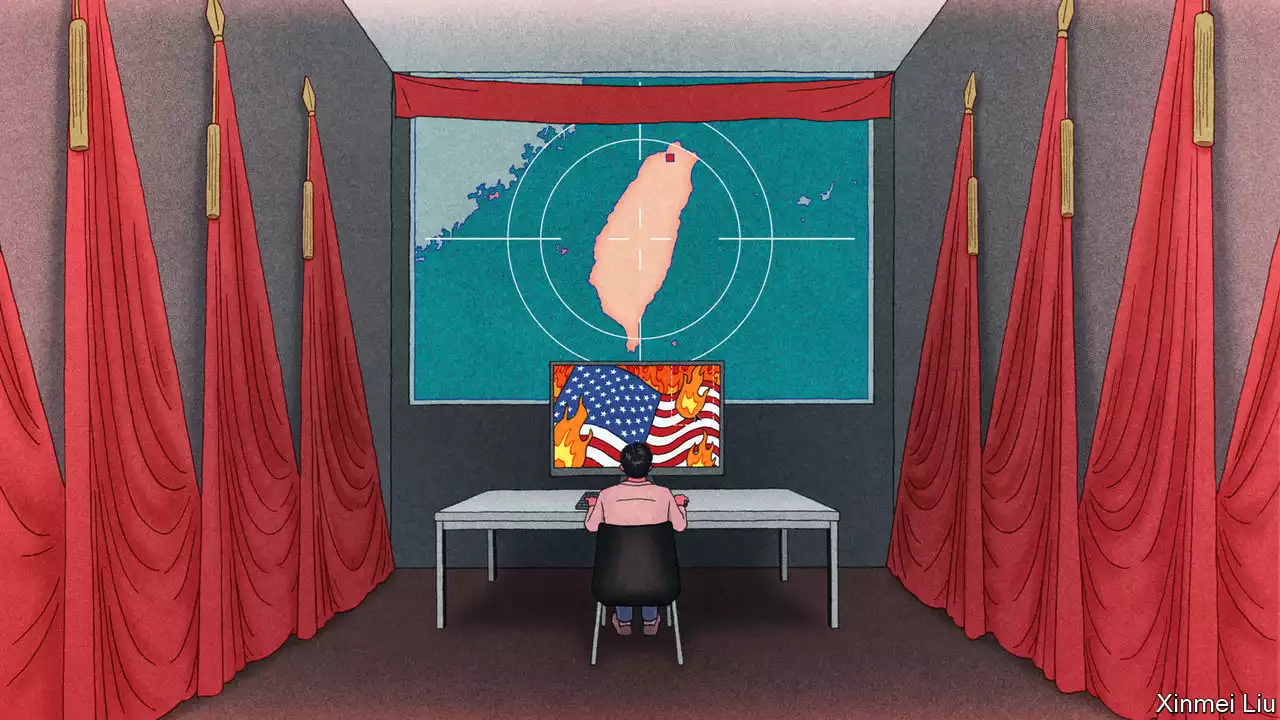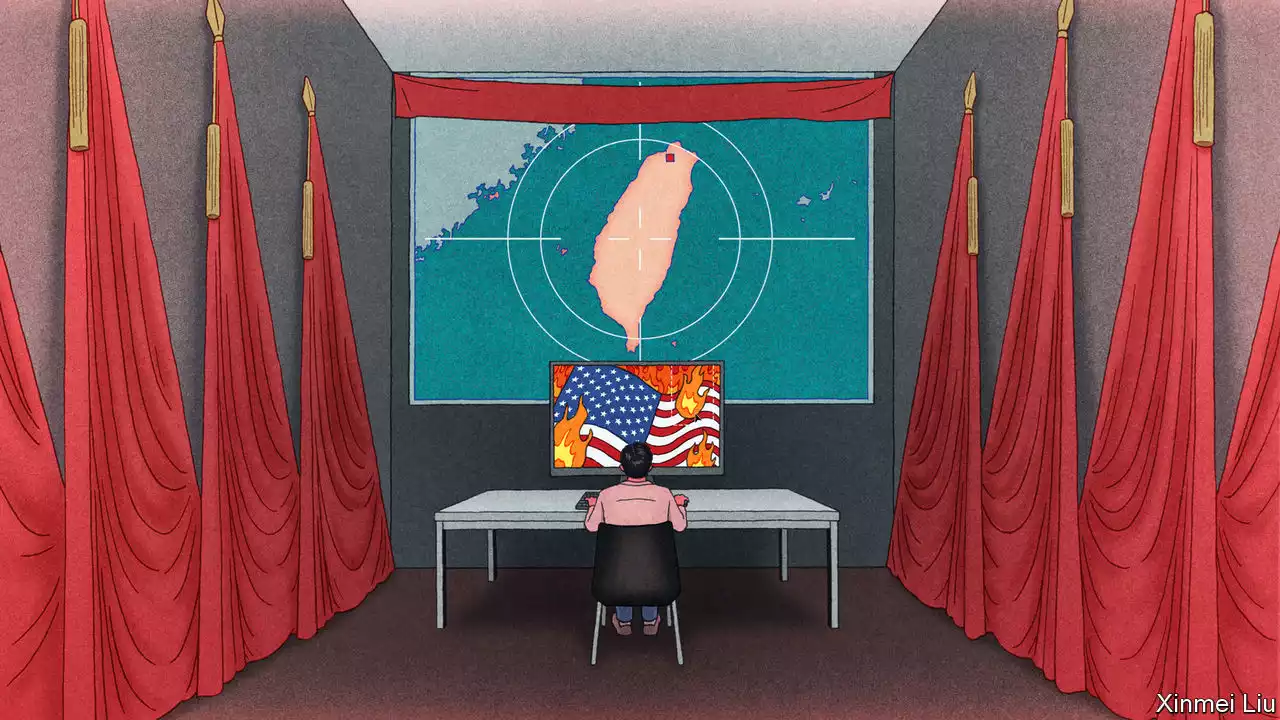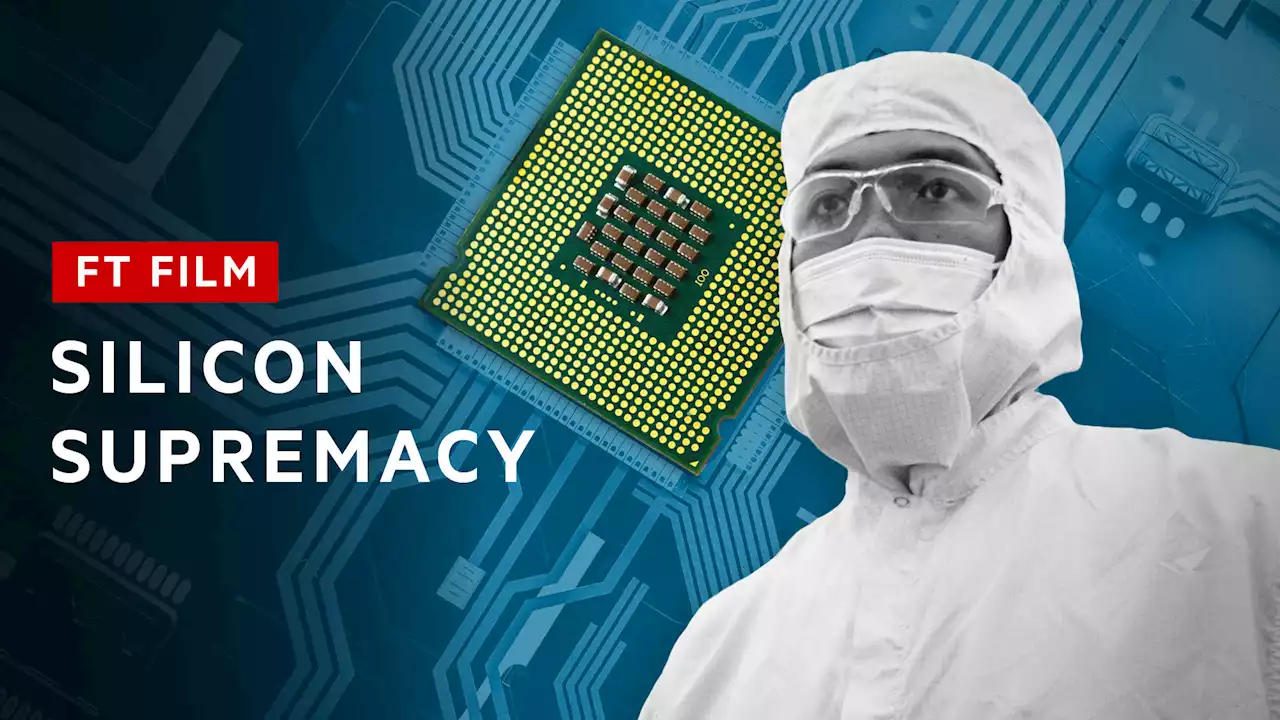The US is bidding to regain a leading role in advanced chip manufacturing, to de-risk critical supply chains, and to combat China's rise as a technological superpower
Produced and edited by Ben Marino. Videography by Gregory Bobillot, Tom Griggs, and James Goldman. Hong Kong production by Qianer Liu. Graphics by Russell Birkett. Grade and sound mix by Coda. Executive producer Joe Sinclair. Commissioning editor Veronica Kan-DapaahSPEAKER: The slumbering giant that is America has finally awakened.SPEAKER: Technological leadership has been the source of US strength since World War II.
JOHN NEUFFER: The US no longer manufactures the most innovative chips. 7 nanometers and below, Taiwan manufactures 92% of those chips. 8% of those chips are manufactured in South Korea, and none are manufactured in the US. We just want more of the new manufacturing that's coming online to happen in the US.
SPEAKER: Members of Congress I have the high privilege and distinct honour to present to you the President of the United States SPEAKER: As the US looks to become a real leader in global chip making again, it's looking at creating centres across the country where it can build up on the skills, both of the people and of the local suppliers that are needed around these large chip fabs.
CHRIS MILLER: Arizona has been a centre of semiconductor manufacturing in the US for several decades. But in the past couple of years, it's seen major new investments, both from Intel and from TSMC, both of which are building brand new, cutting edge chip making facilities. Now, I feel like I'm getting very close to that dream. This is our clean room and we have a lot of tools, but you could notice one of the things you would start noticing right away. This area is white, that area is yellow. And again, coming back to when you do any sort of lithography work, when you're exposing, like, a film and you're developing it, you want to have no UV light.
CHRIS MILLER: If you look at the founding of Silicon Valley there were workers from Europe, from Korea, from Egypt, for example, in the founding of some of the earliest companies in Silicon Valley. In the last five to eight years, Intel lost its edge, it lost its ability to just keep staying one step ahead of the rivals, if you like. And other companies caught up.
CHRIS MILLER: In 1965, Gordon Moore set out in a paper what became known as Moore's Law. The idea behind it was that the number of transistors per chip would double every year or two, and that was just a prediction. It's not a law of nature, but it's proven correct for over half a century. JAMES LEWIS: Until the periodic table is exhausted, Moore's Law isn't finished, right? We're just going to keep bending the edge of science to find how to keep these advancements underway.
CHRIS MILLER: Over the course of 2021 and 2022, car companies globally saw several hundred billion dollars in lost sales because they couldn't get the chips they needed to finish their cars. RICHARD WATERS: TSMC, the global leader at the moment, basically focuses most of its manufacturing close to its home and operates absolutely massive plants with huge output.
JOHN CORNYN: This is a bad day for President Xi and the Chinese Communist Party. The slumbering giant that is America has finally awakened to the challenge that we face from the People's Republic of China. Their aggressive posture in the region, and the potential they would have of cutting off our access to advanced semiconductors.
JAMES LEWIS: What if China, in some way, got control of Taiwan? It doesn't have to be an invasion, but a much lower budget approach would be to make sure that the right folks won the next Taiwanese election. And what happens if the Taiwanese government says to the US, thanks a lot, you can go now? Conflict need not be military conflict, and that's a point that gets lost.
JAMES LEWIS: In addition to the 25% to 35% it consumes, it has another 25% to 30% of world supply chain goes through China. So it plays a critical role in the supply chain as well. SPEAKER: It's not just the basic science that has to be grokked, but there's a lot of tacit knowledge, if you wish, shop floor knowledge into how to make it work that's very hard to replicate. TSMC has a tremendous amount of shop floor knowledge, that tacit knowledge of their workers, of how to make those processes actually run and produce high yields.SPEAKER: Advanced semiconductors, a key development and national security priority in China.
United Kingdom Latest News, United Kingdom Headlines
Similar News:You can also read news stories similar to this one that we have collected from other news sources.
![]() China seeks advances in AI, optoelectric semiconductorsUnderwater comms make list of 14 techs at which Beijing hopes to do better
China seeks advances in AI, optoelectric semiconductorsUnderwater comms make list of 14 techs at which Beijing hopes to do better
Read more »
 Chinese disinformation in Taiwan is in overdriveWith elections looming, China wants Taiwanese voters to think America is their greatest threat
Chinese disinformation in Taiwan is in overdriveWith elections looming, China wants Taiwanese voters to think America is their greatest threat
Read more »
 China is flooding Taiwan with disinformationWith elections looming, China wants Taiwanese voters to think America is their greatest threat
China is flooding Taiwan with disinformationWith elections looming, China wants Taiwanese voters to think America is their greatest threat
Read more »
